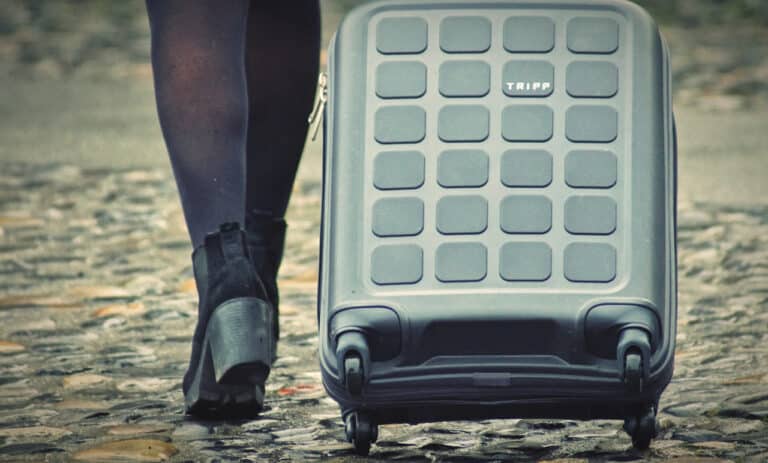Becoming a parent is one of the most rewarding experiences in a person’s life. Seeing their family grow, literally and figuratively, is something people of all ages dream about and plan.
As your baby grows into a toddler, they become their own person, with wants and needs and an exploratory nature. Kids will adventure about your home into places that border on being dangerous, and it is up to the parents to make sure that nothing will go wrong when this time comes.
What home you decide to buy, what you pay in home insurance rates, where you locate it, and its size and shape are all factors that you need to consider if you are a family with children moving into a new place.
We’ll look at all these things and give you four tips for toddler-proofing your home. Whether that means buying or renting a different type of home to cater to your kids or what you can do to make the best of a situation that isn’t friendly to families, there is something for everyone to learn.
#1 – Consider the Age and Height of Your Child
Toddler-proofing your home changes depending on the age and size of your kid. Putting a gate on the end of the staircase is required for tiny children. Still, when they get over the age of about 3, most will have grown to the point that it’s no longer dangerous for them to go up and down stairs. The risk of injury is minimal by this time in the development cycle.
The same thing applies to hiding things from your toddler in places that they can’t reach yet. Are you worried about them taking your kitchen knives or prescription drugs? Put these hazards up much higher in the counter space, not down on the floor level where they can easily explore and open up an emergency.
Don’t give your kid toys or activities that are non-age-appropriate. Objects like trampolines, slides, swing sets, and swimming pools are all trademarks of childhood fun, but only if they are taken advantage of at the right time in development.
#2 – Tell Your Insurance Company That You Will Have Children in the House
You must reiterate to your home insurance company that you will be having children or that you already have kids moving into the home when you buy it. Rates are sometimes affected by having small children because of the havoc they can cause around the residence. Still, an understanding agent will guarantee that you are not discriminated against for having little kids.
Some companies will give you discounts for having a family, so you should never buy a home that is restrictive to your kids and their safety just because you are worried about higher rates. Negotiate with the right people who care about your family’s future and there should be nothing to fret over.
#3 – Look to the Future and Be Proactive
A big part of buying a home that is right for your kids is to plan ahead before you reach the stage when your child needs the things you have in mind. If you think you are going to have many kids instead of just one, make sure that you buy a house that has a large yard and adequate fencing so that they can safely play without you worrying about traffic or foliage.
Often, the same preventative measures that will keep your dog from getting into trouble will work for small children too. Make sure that if you have pets and children that you have property and pet liability coverage.
There is nothing worse than purchasing a space that contradicts what you have imagined for your kids. Plan carefully, but understand that changes can occur abruptly, and don’t be hard on yourself if those changes occur.
Kids are so rambunctious that the best way to childproof sometimes is to always keep an eye on them in some way. Every time you think you have built the right environment or barred off the parts of the house where they could trip and get injured, something bad still happens. The creative mind of a child always finds a new way to explore and put themselves at risk.
As long as you remember that you can never sit by and keep a heightened awareness of the home’s potential threats to your toddler, you’ll be able to find great comfort in their safety.
#4 – React to Your Child’s Emotions Accordingly
Many kids are intelligent enough to understand that their parents are keeping certain parts of the house and its accompanying objects off-limits from them because of their young age. What they don’t understand is why that judgment is being used and how it benefits them in the long run.
Maturely talk to your child about why you have chosen to protect them from dangerous things in the house. If they throw a tantrum, don’t take it personally or overreact to their wild emotions. Understand that we were all in these formative years at one point, and it is frustrating for kids when they want to learn more about the world around them.
When they have aged to the point where previous hazards are no longer dangerous, reward them for their patience by explaining why the child-proofing measures have been taken away and what their new limitations are in and around the home.
When All Else Fails, Just Use Common Parenting Sense
These tips are not the end-all of your parenting advice for keeping your toddler safe around the house. Talk to experienced professionals about other strategies for your family, or observe what other trusted parents in your family, neighborhood, or inner circle can tell you about toddler-proofing a home.
The most important thing you can do is to trust your best judgment and your parental intuition. If it feels like something is too dangerous, those instincts are most likely to be correct. You love your kid so much, and that adoration will translate to protection and insightful ideas on this subject matter. Have fun creating your family-friendly home atmosphere, and don’t overthink it.





![Home Renovation Guide [2025]](/app/uploads/2021/04/design-hacks-1-768x512.jpg)





![Home Renovation Guide [2025]](/app/uploads/2021/04/design-hacks-1-378x300.jpg)
